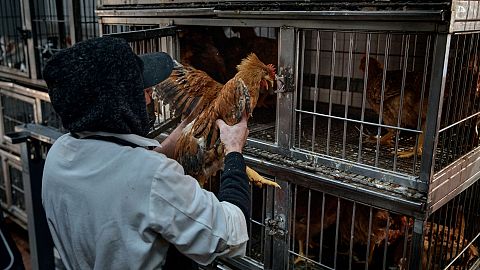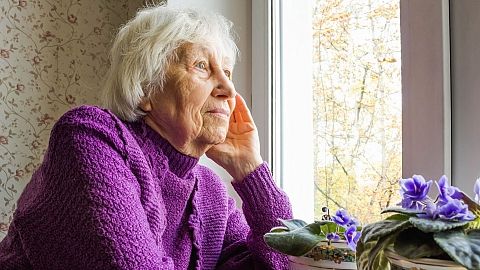For certain conditions, those who were more disadvantaged had twice as high a risk of developing age-associated diseases.
 ADVERTISEMENT
ADVERTISEMENT
People with a good socioeconomic background tend to show fewer signs of biological ageing, according to a new study.
Researchers from the UK studied different cohorts of patients and looked at 83 diseases known to be linked to ageing, such as osteoporosis, cataracts, or an enlarged prostate and blood tests measuring proteins circulating in the blood’s plasma.
They then analysed the patients' data related to their social and economic background such as education level, quality of neighbourhood life, or household income.
Those who were the least privileged showed a 20 per cent higher risk of disease compared to their more privileged counterparts, according to the findings published in the journal Nature Medicine.
"For decades, we’ve known that social advantage is linked to better health, but our findings suggest it may also slow down the ageing process itself," Mika Kivimaki, a professor at the University College London (UCL) and the study’s lead author, said in a statement.
"Our study highlights that healthy ageing is an achievable goal for society as a whole, as it is already a reality for people with favourable socioeconomic conditions," she added.
For certain conditions, the disparity is particularly stark, with a risk twice as high in the most disadvantaged group for type 2 diabetes, liver disease, heart disease, lung cancer, and stroke compared to the most advantaged.
Proteins impacted by socioeconomic situation
Researchers also looked at the proteins in the blood’s plasma.
"Ageing is reflected in the makeup of proteins in our blood, which includes thousands of circulating proteins linked to biological ageing processes across multiple organ systems," said Tony Wyss-Coray, a professor at Stanford University in the US and one of the study’s authors.
The levels of 14 plasma proteins were affected by a person’s socioeconomic situation, including proteins known to regulate inflammatory and cellular stress responses, both linked to ageing.
The study's findings suggest that upward social mobility can positively influence biological ageing.
Individuals who started with low education but later had middle or high social status showed more favourable protein profiles.
The studies pooled by researchers are observational and can’t determine cause-and-effect, however, the authors suggested factors such as stress, smoking, diet, exercise, and access to healthcare could play a role.
















